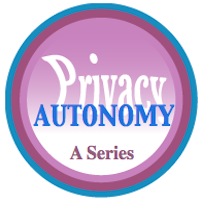 How to Protect Yourself from Pervasive Surveillance and Control shows how you can act to protect yourself, your family and your community from the rise of digitally enabled surveillance and control. How to Protect Yourself from Pervasive Surveillance and Control shows how you can act to protect yourself, your family and your community from the rise of digitally enabled surveillance and control.
Privacy and Autonomy in the Digital Age is a series I’m writing to share my insights into disruptive risks that we face, individually and collectively, due to the digitization of the world. As I wrote in Part1, my technology adoption crystal ball says that the convergence of pervasive digital data, smart devices and their centralized [cloud] control enables unprecedented surveillance and control of people at a very low cost. This post offers various suggestions for mitigating the risks, while Police State Scenarios (Part3) discusses ways that collective permanent loss of autonomy could unfold.
[…]
 In Healing Business, I’ll share why I think business needs healing and how CSRA is doing it with experiential social media. Business is wounded from a human point of view because it’s become very impersonal; large organizations don’t mean to, but they treat employees and customers as numbers because they don’t know or trust them. Experiential is a practical way to change that. In Healing Business, I’ll share why I think business needs healing and how CSRA is doing it with experiential social media. Business is wounded from a human point of view because it’s become very impersonal; large organizations don’t mean to, but they treat employees and customers as numbers because they don’t know or trust them. Experiential is a practical way to change that.
If you’d like to watch this post instead of reading it, click the thumbnail button!
[…]
 Technologies Enabling the Police State describes the inevitability of pervasive surveillance, how it’s developing, and how we can act now to maintain the maximum degree of freedom. This is Part1 of a series on autonomy in the digital age. Personal and Collective Actions to Maintain Autonomy (Part2) is a how-to post, while Police State Scenarios (Part3) discusses ways that collective permanent loss of autonomy could unfold. Technologies Enabling the Police State describes the inevitability of pervasive surveillance, how it’s developing, and how we can act now to maintain the maximum degree of freedom. This is Part1 of a series on autonomy in the digital age. Personal and Collective Actions to Maintain Autonomy (Part2) is a how-to post, while Police State Scenarios (Part3) discusses ways that collective permanent loss of autonomy could unfold.
Despite their grim titles, these posts are not intended as doomsday writings, and I don’t intend to say that I think a police state is being developed intentionally. My conclusion is rather that the technologies of mass control are developing rapidly, and the risk is significant that some group will seize control of them in the foreseeable future. I think you’ll find some of their points surprising, perhaps even breakthrough. Please let me know in comments!
I did not want to write this post, and I doubt that you want to read it; however, as I explain here, we’re at a pivotal point of human history. We are rapidly losing our […]
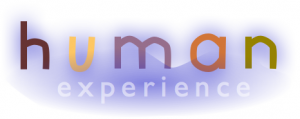 On human experience invites you to examine common marketing practices from a human experience perspective. It expands part of a presentation I gave at the University of Chicago Booth that the audience experienced as mind-bending based on their facial expressions. On human experience invites you to examine common marketing practices from a human experience perspective. It expands part of a presentation I gave at the University of Chicago Booth that the audience experienced as mind-bending based on their facial expressions.
Quite by accident I’ve happened on a rare view of humanity while practicing experiential social media during the last ten years. Experiential’s core research process involves conducting ethnographic research of thousands of people in specific situations. I analyze human behavior in communities in digital public, and it’s very rich, nuanced and complex. Ethnographic yields unparalleled qualitative and quantitative insights into behavior and human experience.
Experiential consistently reveals that many marketing practices repel people rather than attracting them because the environment in which marketing is practiced has completely changed from when these practices developed. Marketing creates mistrust and pushes people away, as I’ll show below. This post attempts to reveal this anachronism to you, so you can correct your practices and take the advantage from your competitors.
[…]
 Behavioral economics autonomy and ethics is a thought experiment on how to approach “doing good” when applying the emerging practice of behavioral economics. Along with big data analytics and cognitive science, behavioral economics affords businesses, governments and other organizations unprecedented impact on individuals’ behavior, even without their consent or awareness. This arouses serious ethical and social dilemmas. Behavioral economics autonomy and ethics is a thought experiment on how to approach “doing good” when applying the emerging practice of behavioral economics. Along with big data analytics and cognitive science, behavioral economics affords businesses, governments and other organizations unprecedented impact on individuals’ behavior, even without their consent or awareness. This arouses serious ethical and social dilemmas.
Every behavioral economics practitioner I’ve met has emphasized the importance of using its practice “for good” in order to help people. Like all other human endeavors, however, “for good” is open to interpretation, so I’ll apply my experience with ethnographic and behavioral analysis of social media to reflect on what “for good” might mean in light of individual and group autonomy.
I also hope this Noodle will be food for thought for executives who hire behavioral economics firms as well as all of us who are invariably its subject. In a similar vein, most designers I know are committed to using design principles to improve user experience, and there’s considerable overlap between design and behavioral economics.
Behavioral economics is […]
Social media strategy lessons learned summarizes eleven golden rules I’ve learned while leading strategy and its execution for global firms. Some of them might surprise you: I’ve come to learn that I have a different perspective on social media strategy since I advised global firms and startups in their corporate strategies before founding CSRA in 2006.
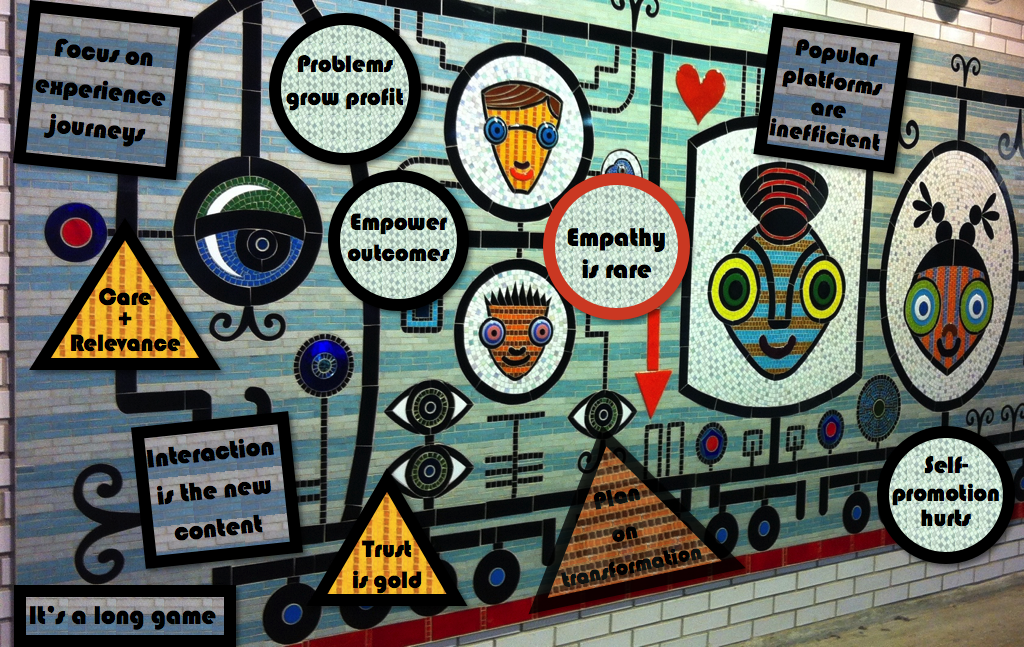
Before diving into lessons learned, let’s specify what we mean by social media strategy. “Strategy” itself is an overused work that denotes some mixture of research and planning. The strategy trade-off is simple: the more research and analysis you do upfront, the more risks you can foresee and account for in your plan. When you put your plan into action, you make fewer mistakes and execute more efficiently. Conversely, “minimum viable”/lean strategy does less research upfront, so the team learns while doing. Neither approach is universally “right,” and both work best for certain situations and firms.
[…]
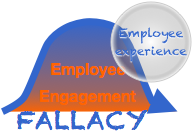 The Employee Engagement Fallacy reveals that most literature, papers, and methods are built on faulty Industrial Economy employment attitudes, and it provides an approach that uses experiential social media to help reframe employment and performance. The Employee Engagement Fallacy reveals that most literature, papers, and methods are built on faulty Industrial Economy employment attitudes, and it provides an approach that uses experiential social media to help reframe employment and performance.
Although the idea of “employee engagement” can be a rare opportunity to increase competitiveness, its practice is compromised by well intended but flawed logic.
Here’s the fallacy: Employee “engagement” is the result of employees’ experiences while they’re working at employers. Few engagement programs focus on employees’ experiences, so they fall short.
Engagement is not achieved by a program or initiative that focuses on the outcome. Employers see much more success at achieving the result when they focus on empowering the experiences their employees want when they decide to work at the employer. Experience is the motor of engagement, so empowering experience is the first step of raising productivity and lowering employment costs, two common employee engagement goals. Here’s how it’s done.
[…]
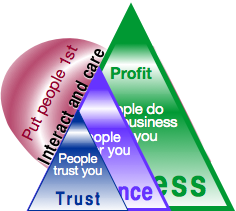 The Trust-Business Chain Reaction How Trust Monetizes describes one of the most disruptive and untapped forces in business, for it shows how trust monetizes at scale. Firms that act on it first can create exceptional advantage for themselves since the reaction grows geometrically. Here is how the reaction works—and how experiential social media activates it. The Trust-Business Chain Reaction How Trust Monetizes describes one of the most disruptive and untapped forces in business, for it shows how trust monetizes at scale. Firms that act on it first can create exceptional advantage for themselves since the reaction grows geometrically. Here is how the reaction works—and how experiential social media activates it.
The Trust-Business Chain Reaction significantly increases profit and other business results in a surprisingly simple human way. It directly addresses customer experience and employee engagement.
[…]
 Reflections on Trust: The Power of Trusting People to Be True to Themselves delves into how trust works in personal and business situations Reflections on Trust: The Power of Trusting People to Be True to Themselves delves into how trust works in personal and business situations
Many people are talking about trust in business these days. I am, too, because it’s the core of my business as well as my personal life. It just occurred to me that there are often some accidental gotchas within many trust discussions I read, and I’ll explore them in case that’s useful to you. First, I’ll delve into trust a little before sharing some insights on how you can make it actionable in your personal, career, and business relationships.
[…]
 This winter carries a surprising benefit of extreme weather. It has been a bit colder than usual in much of the U.S.A. due to the “Polar Vortex,” and I have observed that many professional groups in Chicago have canceled or postponed events due to “extreme weather” over the past two months. This has started to become a phenomenon, so I’ve been observing it with interest. This winter carries a surprising benefit of extreme weather. It has been a bit colder than usual in much of the U.S.A. due to the “Polar Vortex,” and I have observed that many professional groups in Chicago have canceled or postponed events due to “extreme weather” over the past two months. This has started to become a phenomenon, so I’ve been observing it with interest.
My social business client work involves analyzing digital social networks, and it constantly reveals how people affect each other’s behavior, often in surprising ways. I hypothesize that reactions to this weather phenomenon are having unintended effects, so, in the spirit of all Noodles, I’ll explore some of these deeper meanings and invite your thoughts.
[…]
|
|
 How to Protect Yourself from Pervasive Surveillance and Control shows how you can act to protect yourself, your family and your community from the rise of digitally enabled surveillance and control.
How to Protect Yourself from Pervasive Surveillance and Control shows how you can act to protect yourself, your family and your community from the rise of digitally enabled surveillance and control.
 In Healing Business, I’ll share why I think business needs healing and how CSRA is doing it with experiential social media. Business is wounded from a human point of view because it’s become very impersonal; large organizations don’t mean to, but they treat employees and customers as numbers because they don’t know or trust them. Experiential is a practical way to change that.
In Healing Business, I’ll share why I think business needs healing and how CSRA is doing it with experiential social media. Business is wounded from a human point of view because it’s become very impersonal; large organizations don’t mean to, but they treat employees and customers as numbers because they don’t know or trust them. Experiential is a practical way to change that. On human experience invites you to examine common marketing practices from a human experience perspective. It expands part of a presentation I gave at the University of Chicago Booth that the audience experienced as mind-bending based on their facial expressions.
On human experience invites you to examine common marketing practices from a human experience perspective. It expands part of a presentation I gave at the University of Chicago Booth that the audience experienced as mind-bending based on their facial expressions. Behavioral economics autonomy and ethics is a thought experiment on how to approach “doing good” when applying the emerging practice of behavioral economics. Along with big data analytics and cognitive science, behavioral economics affords businesses, governments and other organizations unprecedented impact on individuals’ behavior, even without their consent or awareness. This arouses serious ethical and social dilemmas.
Behavioral economics autonomy and ethics is a thought experiment on how to approach “doing good” when applying the emerging practice of behavioral economics. Along with big data analytics and cognitive science, behavioral economics affords businesses, governments and other organizations unprecedented impact on individuals’ behavior, even without their consent or awareness. This arouses serious ethical and social dilemmas.